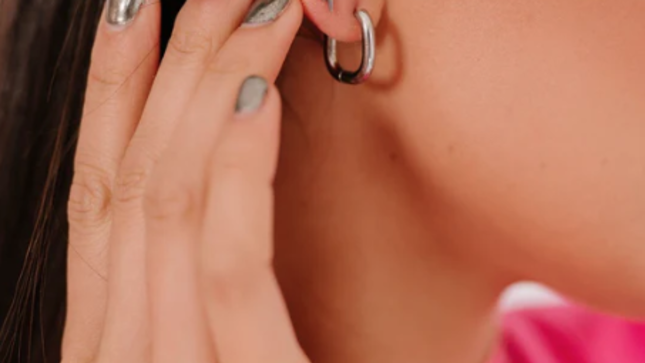
The ear piercing industry is growing quickly, fueled by more people wanting to express themselves through body modification. As interest in customizing appearances increases, it's important to know the basics of safe and stylish ear piercing. Choosing the right piercing stud is vital not just for how it looks but also for a smooth healing process. With many options available, it's important to know which types work best for new piercings.
In the following text, we’ll guide you through the best studs for new piercings, covering different materials, designs, and care tips. We'll explain why studs are often preferred for fresh piercings, the need for non-reactive metals, and showcase popular stud designs that prioritize comfort and safety. By the end, you'll have the knowledge to make informed choices for a healthy and stylish ear piercing experience.
Why Studs are Preferred for Fresh Piercings
For fresh piercings, studs are a popular choice for both professionals and beginners in body art. Their main advantage is their stability; being smaller and closer to the ear, they're less likely to get caught on hair, clothing, or other things, which helps prevent irritation and injury. Studs also usually have a flat back that sits comfortably against the skin, reducing pressure and making them easier to wear for long periods.
Unlike hoops or dangling earrings that can move around and disrupt healing, studs stay mostly in place, which can help the piercing heal faster and more smoothly. These features make studs the preferred option for fresh piercings, offering comfort, safety, and style.
Material Matters: Choosing the Right Metal
Selecting the right metal for your ear piercings is a must for ensuring a healthy healing process. Hypoallergenic metals like surgical steel, titanium, and gold are highly recommended. Surgical steel is durable and rust-resistant, making it a reliable choice for new piercings. Titanium is another excellent option due to its lightweight nature and low chance of causing allergic reactions. Gold, particularly in its higher purities, remains a timeless favorite for its elegance and skin compatibility.
These metals help minimize the risk of irritation or infection, allowing your piercings to heal smoothly. Understanding these metal choices can make your piercing experience more comfortable and successful.
Popular Stud Designs for New Piercings
When getting an ear piercing, choosing the right stud is key for a smooth and stylish healing process. Flat-back studs are popular because they sit close to the skin, making them comfortable for sleeping and less likely to snag. Internally threaded studs are another favorite; their hidden thread helps prevent irritation during installation. Push-pin studs are also a great option, known for their easy-to-use friction-fit mechanism that keeps them secure without the need for threading.
These designs all aim to provide a safe and comfortable experience, helping the piercing heal properly while allowing for personal style. While style is important, the main focus should be on the health and stability of the new piercing, which is why these studs are highly recommended by shops and piercing experts.
The Importance of Size and Gauge in New Piercings
When choosing studs for new piercings, size and gauge are key. The right combination ensures comfort and a smoother healing process. The gauge refers to the thickness of the stud's post, and selecting the proper one helps prevent pressure and complications. For earlobe piercings, a 16 to 18 gauge is standard, but it's best to get professional advice for other areas like cartilage.
The size of the stud should also be balanced. Oversized studs can cause tugging, while very small ones might embed into the skin as swelling occurs. A well-chosen size and gauge promote good air circulation, which is key for faster healing. It's important to consider your personal anatomy and lifestyle when making these choices.
Caring for Your Piercing: Essential Tips
After getting a new piercing, it's important to take good care of it to help it heal properly and look great. Clean your piercing every day with saline solution or a gentle, alcohol-free antiseptic, avoiding harsh chemicals that could irritate your skin. Always wash your hands before touching your piercing to keep bacteria away. Gently rotate the stud while cleaning to prevent crust buildup and keep the hole open.
Try not to sleep on the pierced ear to reduce the risk of irritation, and avoid public pools or hot tubs that might carry bacteria. Pay attention to how your body reacts; if you notice a lot of redness, swelling that doesn't go away, or any unusual discharge, see a healthcare professional.
By understanding the importance of selecting the right studs, materials, and caring for your piercing, you can ensure a smooth healing process and enjoy your new look without complications. Whether you’re choosing hypoallergenic metals, opting for comfortable designs, or following essential aftercare tips, each step plays a vital role in achieving a healthy and stylish ear piercing. With the right choices, your piercings will not only heal well but also become a lasting part of your personal expression.